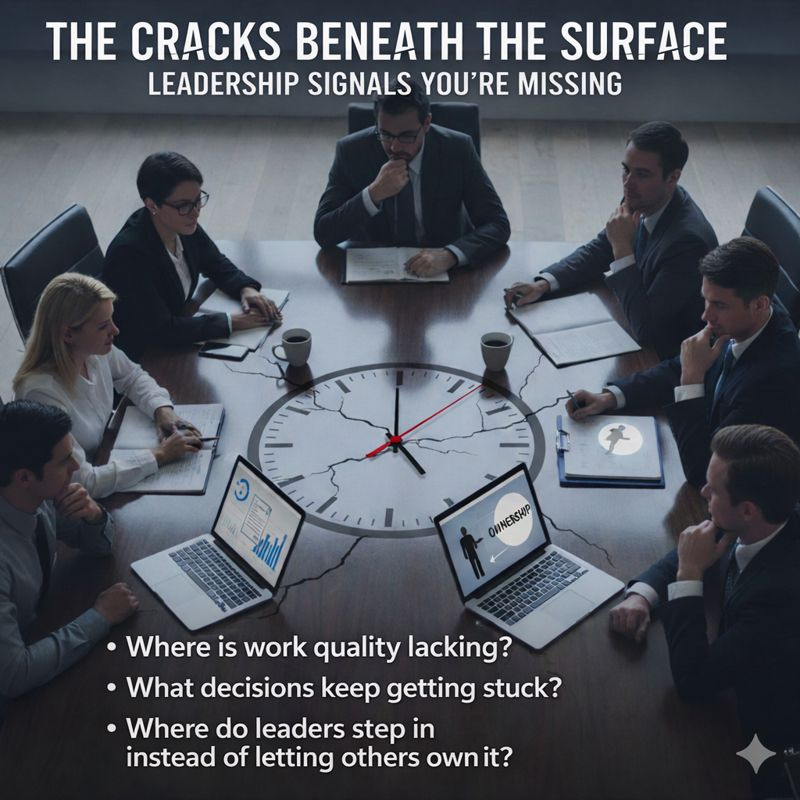Do What Works for You
Brian Sooy • March 18, 2020
It's time to stop listening and start living!

Get ready to leave your comfort zone and discover the exciting opportunities that are open to you. You'll be amazed.

Many leaders feel things are mostly on track. Goals are set. Meetings happen. People stay busy. On the surface, it all looks fine . But underneath, small cracks often tell a different story. You may notice work getting redone, decisions slowing down, or people quietly avoiding ownership. These aren’t just workflow problems. They’re leadership signals — and they’re easy to miss when everyone is moving fast. Leaders often believe they’ve been clear. They think people know what’s expected and who owns what. And they assume that if something was wrong, someone would speak up. But in real life, expectations get interpreted in different ways. Ownership can feel risky. And many people stay silent just to keep the peace. That gap between what leaders intend and what teams experience is where performance starts to slip. A few simple questions can help reveal what’s really going on: · Where is work quality lacking? · What decisions keep getting stuck? · Where do leaders step in instead of letting others own it? Start noticing those patterns. They point to exactly where stronger leadership can make the biggest difference. 👉 See what a 10–15% leadership shift could mean for your bottom line. View the Leadership ROI Chart .

People are essential to your business success—yet many organizations underestimate the return on leadership development. Payroll and benefits alone account for 15 to 60% of operating expenses for most companies. In industries with lower payroll percentages, the trade-off is often expensive equipment—but without well-trained people, even the best tools underperform. The truth is simple: mediocre employee skills produce mediocre business results. What’s often overlooked is where performance and engagement are truly shaped. Employees themselves only control about 30% of the factors that drive engagement and high performance. Leaders control the other 70%. Despite this, only 18% of organizations say their leaders are very effective at achieving business goals, even though 71% offer leadership training. Why the gap? Much of that training focuses on strategy or systems—not on people leadership skills that directly improve performance. When leaders do build those skills, the impact is powerful. Employees who feel supported give 57% more effort and are 87% less likely to leave. Organizations can see earnings increase by as much as 147%. In fact, leadership training delivers a $7 return for every $1 invested—more than double the return on technology investments. Since leadership capability is being touted as the most critical factor for organizational success in 2026, it’s worth asking: Which people leadership best practices have your managers truly adopted? What currently weak areas are the most important to strengthen this year? A short leadership quiz can surface strengths and growth areas that aren’t always obvious—especially when you take time to talk through what it reveals.
